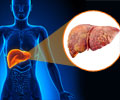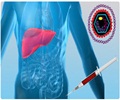- Hepatitis is preventable through vaccination, safe hygiene, and lifestyle habits
- Early detection is crucial for effective treatment and preventing complications
- Advocacy and awareness efforts are essential for addressing barriers and ensuring access to care
Hepatitis Awareness Month
Go to source). From the different types of hepatitis to prevention strategies and treatment options, let’s delve into the significance of this month-long campaign and why it matters for global health.
The hepatitis viruses are named after the Greek word "hepar," meaning liver. Hepatitis literally means "inflammation of the liver"! #hepatitisawareness #prevention #medindia’
What is Hepatitis: Types, Causes, and Symptoms
Hepatitis is characterized by inflammation of the liver, which can range from mild to severe. There are several types of hepatitis viruses, including hepatitis A, B, C, D, and E, each with its own causes, modes of transmission, and symptoms.Hepatitis A and E typically spreads through contaminated food or water, while hepatitis B, C, and D are primarily transmitted through blood-to-blood contact, unprotected sex, or from an infected mother to her baby during childbirth. Symptoms of hepatitis can vary but may include fatigue, jaundice (yellowing of the skin and eyes), abdominal pain, nausea, and dark urine.
Prevention: Vaccination and Safe Practices
Vaccination plays a crucial role in preventing hepatitis, particularly hepatitis A and B (2✔ ✔Trusted SourceHepatitis B virus and cancer prevention
Go to source). Hepatitis A and B vaccines are safe, effective, and widely available, offering long-term protection against these viruses. It’s recommended that individuals receive the hepatitis A and B vaccines as part of routine immunization schedules or through catch-up vaccination programs.
In addition to vaccination, practicing safe hygiene and adopting healthy lifestyle habits can help prevent hepatitis transmission. This includes washing hands thoroughly with soap and water, practicing safe sex by using condoms, avoiding sharing needles or personal items that may come into contact with blood, and being cautious when getting tattoos or body piercings (3✔ ✔Trusted Source
Assessment of hepatitis-related knowledge, attitudes, and practices on quality of life with the moderating role of internalized stigma among hepatitis B-positive patients in Pakistan
Go to source).
Testing and Treatment of Hepatitis
Early detection of hepatitis is crucial for preventing the progression of liver damage and reducing the risk of complications such as liver cirrhosis and cancer. Testing for hepatitis involves blood tests to check for the presence of viral antibodies or genetic material (4✔ ✔Trusted SourceHepatitis A
Go to source). Healthcare providers may also recommend liver function tests and imaging studies to assess liver health.
Treatment options for hepatitis vary depending on the type and severity of the infection. For hepatitis A and E, supportive care such as rest, hydration, and avoiding alcohol is often sufficient, as these infections typically resolve on their own (5✔ ✔Trusted Source
Effects of highly ripened cheeses on HL-60 human leukemia cells: antiproliferative activity and induction of apoptotic DNA damage
Go to source). However, chronic hepatitis B and C may require antiviral medications to suppress viral replication and reduce liver inflammation (6✔ ✔Trusted Source
Hepatitis
Go to source).
Raising Awareness About Hepatitis
Hepatitis Awareness Month provides an opportunity to educate the public, healthcare professionals, and policymakers about the importance of hepatitis prevention, testing, and treatment. Through community outreach events, educational campaigns, and media initiatives, organizations around the world strive to raise awareness about the impact of hepatitis on individuals and communities.Advocacy efforts during Hepatitis Awareness Month also aim to address barriers to hepatitis care, such as limited access to testing and treatment, stigma and discrimination against people living with hepatitis, and inadequate funding for hepatitis programs and research. By advocating for policy changes, increased funding, and improved healthcare infrastructure, advocates seek to ensure that everyone has access to the resources they need to prevent, detect, and manage hepatitis effectively (7✔ ✔Trusted Source
Impact of modern antiviral therapy of chronic hepatitis B and C on clinical outcomes of liver disease
Go to source).
Global Burden of Hepatitis: A Call to Action
Despite progress in hepatitis prevention and treatment, the global burden of the disease remains significant. According to the World Health Organization (WHO), viral hepatitis affects millions of people worldwide, resulting in approximately 1.34 million deaths annually due to complications such as liver failure and liver cancer.Hepatitis Awareness Month serves as a reminder that hepatitis is a preventable and treatable disease, but it requires collective action and commitment from governments, healthcare providers, civil society organizations, and individuals. By raising awareness, promoting vaccination, expanding access to testing and treatment, and advocating for policy change, we can work together to eliminate viral hepatitis as a public health threat and ensure a healthier future for all.
References:
- Hepatitis Awareness Month - (https://www.cdc.gov/hepatitis/awareness/HepatitisAwarenessMonth.htm)
- Hepatitis B virus and cancer prevention - (https://pubmed.ncbi.nlm.nih.gov/21253790/)
- Assessment of hepatitis-related knowledge, attitudes, and practices on quality of life with the moderating role of internalized stigma among hepatitis B-positive patients in Pakistan - (https://pubmed.ncbi.nlm.nih.gov/37008419/)
- Hepatitis A - (https://pubmed.ncbi.nlm.nih.gov/34652109/)
- Effects of highly ripened cheeses on HL-60 human leukemia cells: antiproliferative activity and induction of apoptotic DNA damage - (https://pubmed.ncbi.nlm.nih.gov/20338416/)
- Hepatitis - (https://www.ncbi.nlm.nih.gov/books/NBK554549/)
- Impact of modern antiviral therapy of chronic hepatitis B and C on clinical outcomes of liver disease - (https://pubmed.ncbi.nlm.nih.gov/34447229/)
Source-Medindia
















